Whether you’re a seasoned parent or new to this journey, finding natural ways to support your parenting goals is always a great way to go. Today, we’re exploring fennel seeds and their role in breastfeeding.
Let’s explore how this versatile herb, known as Foeniculum vulgare, can potentially support milk production and other benefits.
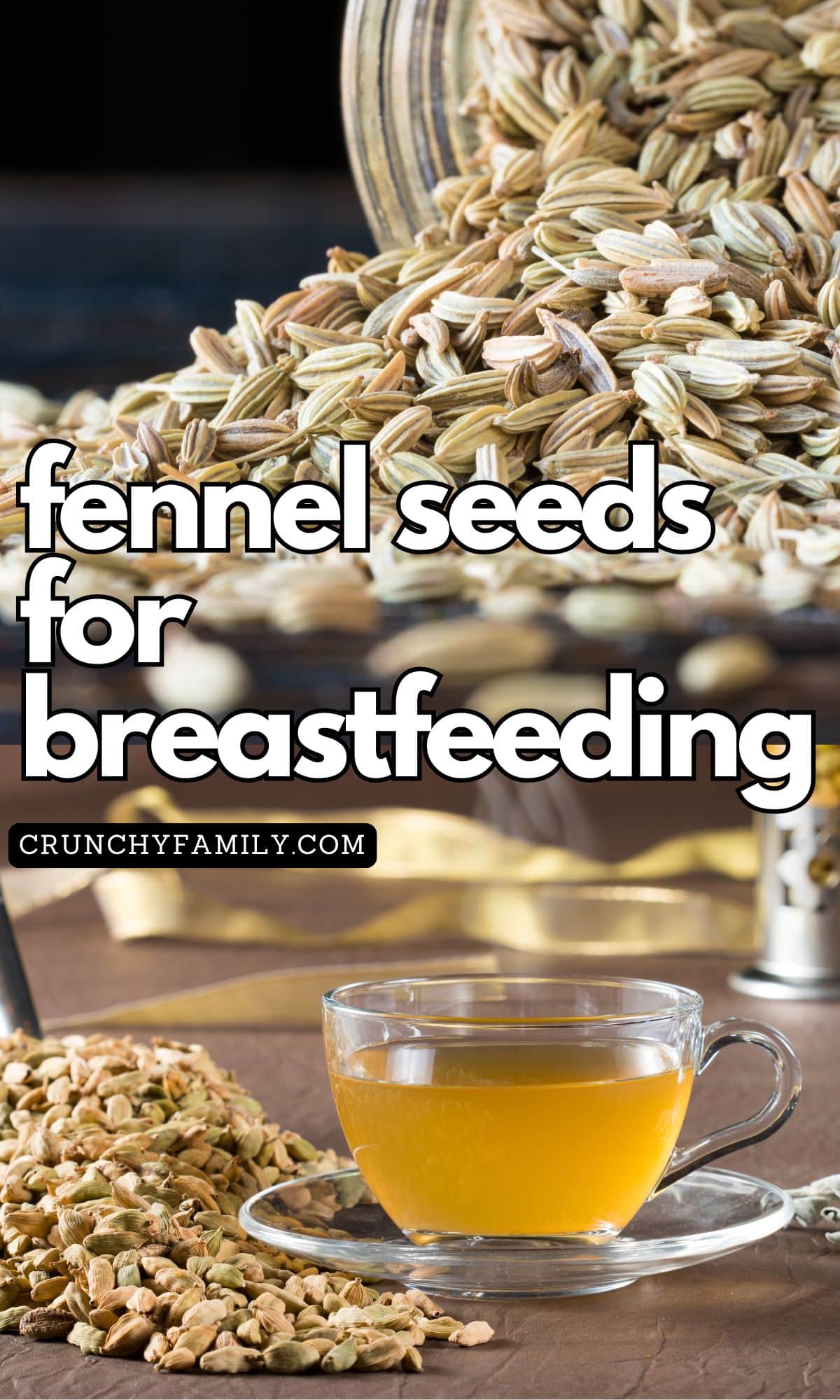
As you probably know, breastfeeding can be both a rewarding and challenging experience, especially for new mothers. Many parents look for natural ways to enhance their breastfeeding journey and ensure their little ones are getting enough milk. That’s where fennel seeds come into play!
From ancient remedies to modern-day uses, this humble seed has been a go-to for moms seeking to boost their milk supply naturally.
But how exactly does it work, and what should you know before incorporating it into your routine? Let’s explore the ins and outs of fennel seeds and their benefits for breastfeeding mothers.
Grab a warm drink, maybe even a cup of fennel tea, and let’s get started!
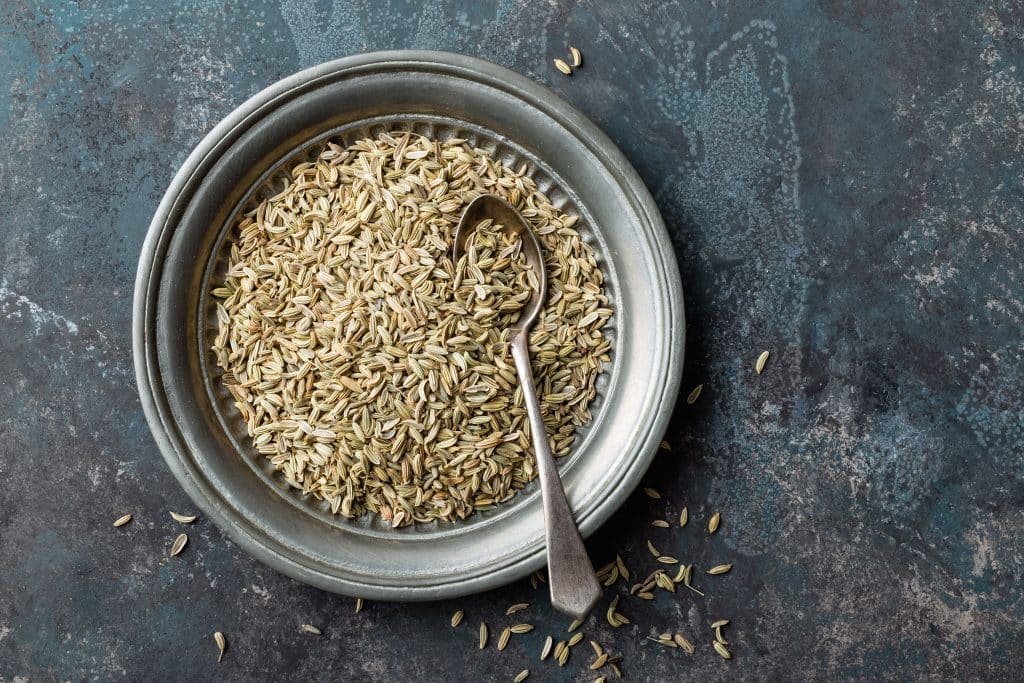
Fennel has a rich history and cultural significance, particularly in the context of women’s health. In ancient Egypt, fennel was not only a culinary staple but also a revered medicinal herb.
It was commonly used in traditional medicine to support lactation and soothe digestive issues, both for mothers and their babies. This tradition has been carried on through various cultures and continues to be a trusted herbal remedy.
Understanding the historical context of fennel use adds depth to its modern application, showing how its benefits have been recognized across different civilizations for centuries.
Does Fennel Help with Milk Production While Breastfeeding?
Fennel seeds have been used since ancient times as a traditional medicine to support lactation. Many new mothers turn to fennel, a well-known herbal galactagogue, to boost their breastmilk supply.
The major compounds in fennel, such as anethole, are believed to mimic estrogen and may promote the production of milk.
Small studies suggest that fennel can increase milk flow and volume, making it easier for mothers to provide enough breast milk. Many mothers find it a natural way to support lactation, and boost the production of breastmilk especially when they face low milk supply.
Related: 8 Ways to Increase Breast Milk Production
Why Does Fennel Help With Breastfeeding?
The effectiveness of fennel seeds as a galactagogue may be due to their unique chemical properties. The seeds are rich in essential oils, such as anethole, fenchone, and estragole, which are thought to stimulate the production of breastmilk by mimicking the hormone estrogen. This can potentially increase serum prolactin levels, a hormone crucial for lactation.
Additionally, fennel’s anti-inflammatory and antioxidant properties may provide overall health benefits, supporting a mother’s well-being during the demanding period of breastfeeding.
These compounds not only help in the production of breastmilk but also contribute to the mother’s recovery and energy levels, making fennel a holistic choice for postpartum care.

Can Fennel Make Baby Gassy?
While fennel is generally safe for both mom and baby, you also need to consider potential side effects. Some mothers worry about whether fennel use could cause digestive issues like gas in their breastfed newborns.
Fennel is known to soothe digestive discomfort, but in larger amounts, it may potentially cause minor digestive issues for some infants, like gassiness or abdominal pain.
However, these reactions are usually mild, and fennel’s benefits often outweigh these minor concerns. As with any herbal remedy, monitoring how your baby responds is key.
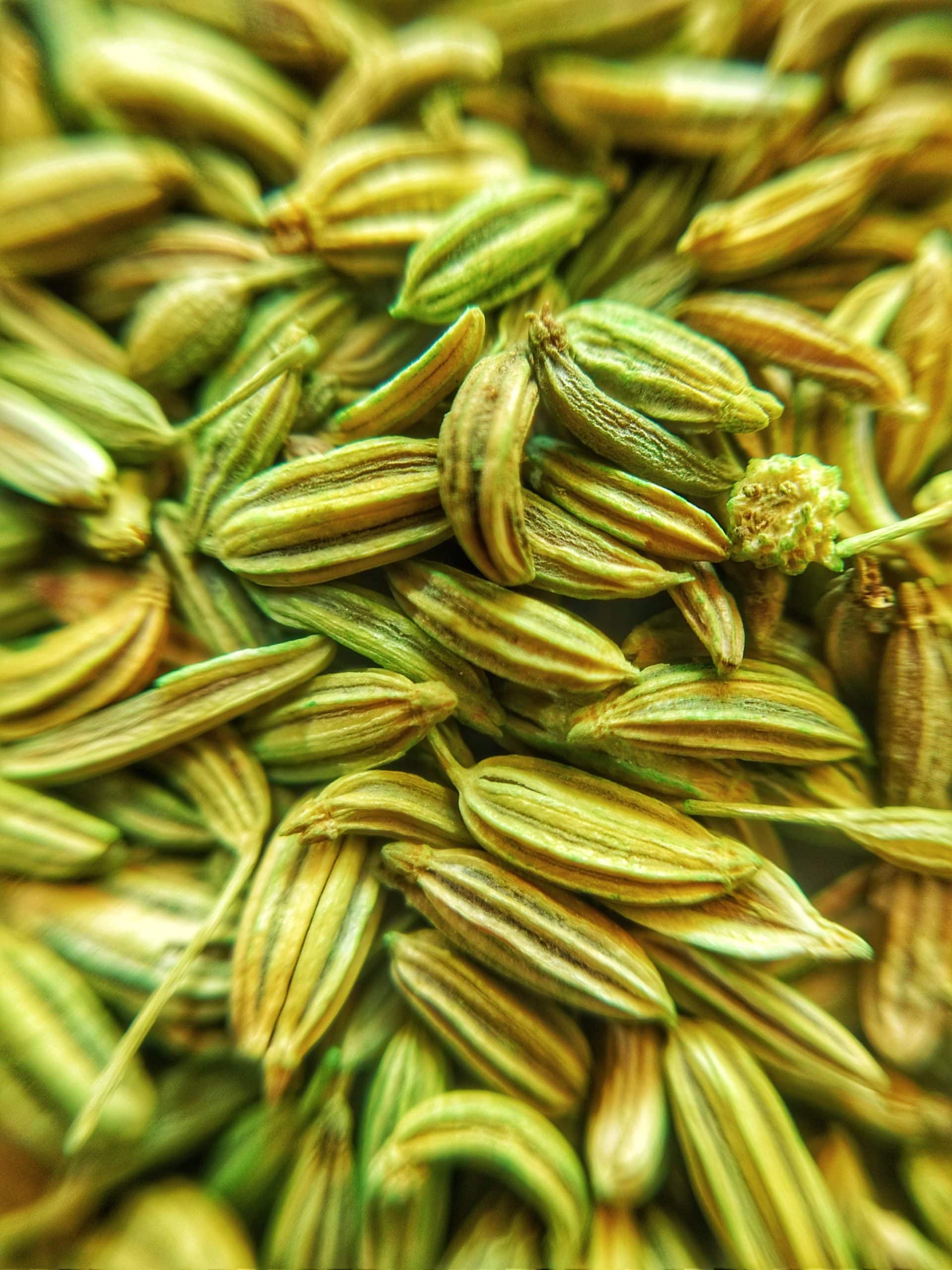
Fennel vs. Fenugreek: Which Is Better?
Fennel and Fenugreek may have similar names but they are not the same thing.
Both fennel and fenugreek seeds are popular in the world of herbal remedies for boosting breastmilk supply. Fenugreek seeds are another well-known galactagogue, often included in proprietary mixtures and teas like mother’s milk tea.
While fenugreek is highly effective, it can cause certain side effects, such as lowering blood sugar levels or impacting liver enzymes.
Fennel, on the other hand, is gentler and has fewer reported adverse effects. It also brings additional health benefits, such as aiding digestion and being rich in nutrients like vitamin C and beta carotene. The best choice depends on individual needs and reactions, so consulting with a lactation consultant or healthcare provider is always a good idea.
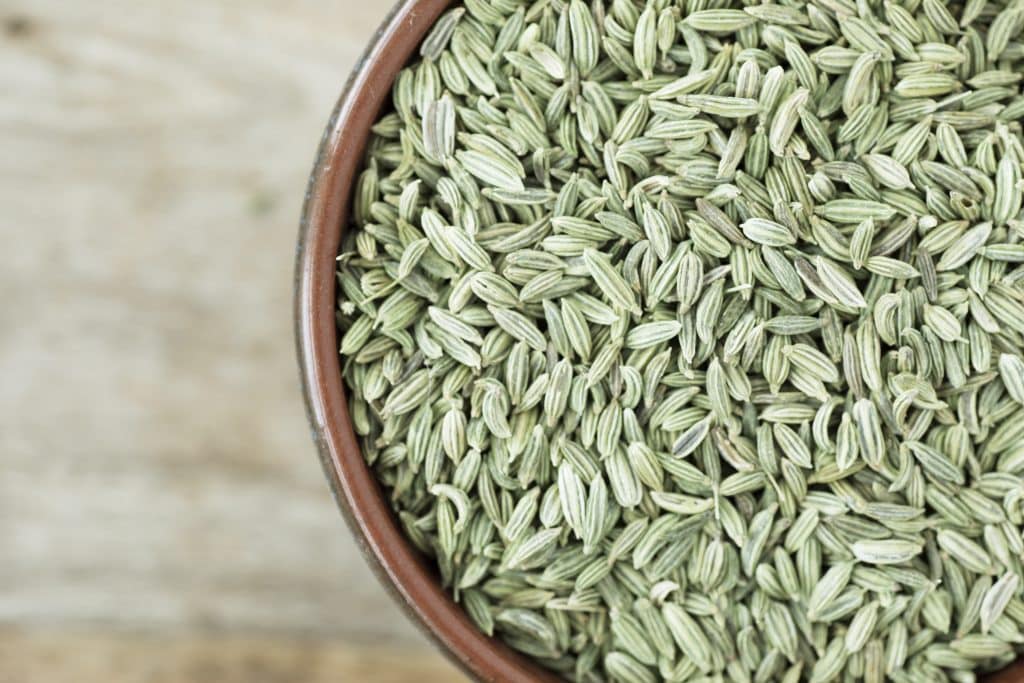
How to Take Fennel to Help with Breastfeeding
There are various methods to incorporate fennel into your breastfeeding diet. Whichever method you prefer, the use of fennel seeds will help give you all of the benefits mentioned.
- Fennel Tea: A warm infusion of fennel seeds is a comforting and effective way to consume fennel. Simply steep a teaspoon of fennel seeds in hot water for about 10 minutes. Enjoy this warm drink early in the morning or throughout the day.
- Fennel Water: Add a few teaspoons of fennel seeds to a glass of water and let it sit overnight. Drink this infused water the next day to help with milk production.
- Fennel Seeds in a Glass of Milk – Another way to enjoy the benefits of fennel is by adding them to a glass of milk. This traditional remedy not only enhances the flavor of the milk but also adds the goodness of fennel’s nutrients. To prepare, simply heat a glass of milk and add a teaspoon of crushed fennel seeds. Allow it to simmer for a few minutes, then strain the seeds before drinking. Some mothers prefer to add a touch of honey or a pinch of turmeric for added benefits and taste. This warm, soothing drink can be enjoyed in the evening or before bedtime, making it a comforting addition to your daily routine. It’s especially popular in various cultures as a natural way to support digestion and promote relaxation, which can be beneficial for new moms adjusting to a breastfeeding schedule.
- Fennel Oil: A few drops of fennel essential oil, diluted in a carrier oil, can be massaged onto the breasts. This method is said to help stimulate milk production, but use with caution and consult a professional, as essential oils can be potent.
- Cooking with Fennel: Include fennel seeds in your meals! They pair well with raw nuts, cumin powder, and green leafy vegetables, making them a versatile herb in the kitchen.

Are There Any Side Effects of Using Fennel?
Fennel is generally safe in usual maternal doses, but excessive maternal use of an herbal tea containing fennel can lead to adverse effects. Some women may experience allergic reactions, especially if they have sensitivities to related plants like dill seeds or carom seeds. It’s always best to start with smaller amounts and see how your body reacts.
If you have a medical condition, such as a history of breast inflammation or issues with blood pressure, consult your healthcare provider before starting any new herbal supplement.
In conclusion, fennel is a fantastic, natural way to support a good milk supply. Its use dates back to ancient Egypt, and it continues to be a popular choice among new moms looking for herbal remedies.
Whether you’re drinking fennel tea, using fennel oil, or adding it to your meals, it’s a versatile and accessible option – so go ahead and add a free teaspoons of fennel seed to your diet.
As always, consider discussing any herbal galactagogue therapy with your healthcare provider to ensure it’s right for you and your baby.
Here’s to happy, healthy breastfeeding and a well-supported journey into parenthood!
More Breastfeeding Resources
Breastfeeding can be a rewarding yet challenging experience, and having access to reliable resources can make all the difference.
Whether you’re looking for tips on latch techniques, ways to boost your milk supply, or answers to common breastfeeding questions, we’ve got you covered. Dive into our collection of helpful articles and guides to support you on your breastfeeding journey.
- 17 Effective Ways To Reduce Anxiety When Breastfeeding
- Can your period start and stop while breastfeeding? What’s normal?
- Pros and Cons Of Extended Breastfeeding: A Personal Journey
- When Does Breastfeeding Get Easier?
- What is the 2 Shirt Method of Breastfeeding?
More Natural Remedies
Looking for natural ways to support your health and well-being? From herbal teas to soothing oils, our collection of natural remedies offers gentle and effective solutions for everyday concerns. Explore time-tested remedies and discover new favorites to incorporate into your holistic lifestyle.
- 14 Natural Remedies For Acid Reflux In Children
- 5 Natural Remedies For Insomnia During Pregnancy
- 12 Effective Natural Remedies for Insomnia in a Child
- Apple Cider Vinegar, Garlic, and Honey: Miracle Home Remedy
- 10 Unusual Ways To Use Yoghurt You Need To Know
We hope you found this post helpful! If you enjoyed reading about the benefits of fennel seeds for breastfeeding, please share this blog post with other moms and parents. Your support helps us continue providing valuable information and building a community of like-minded, natural-living families.
Feel free to share your experiences with fennel and breastfeeding in the comments below. We’d love to hear how this ancient herb has worked for you!
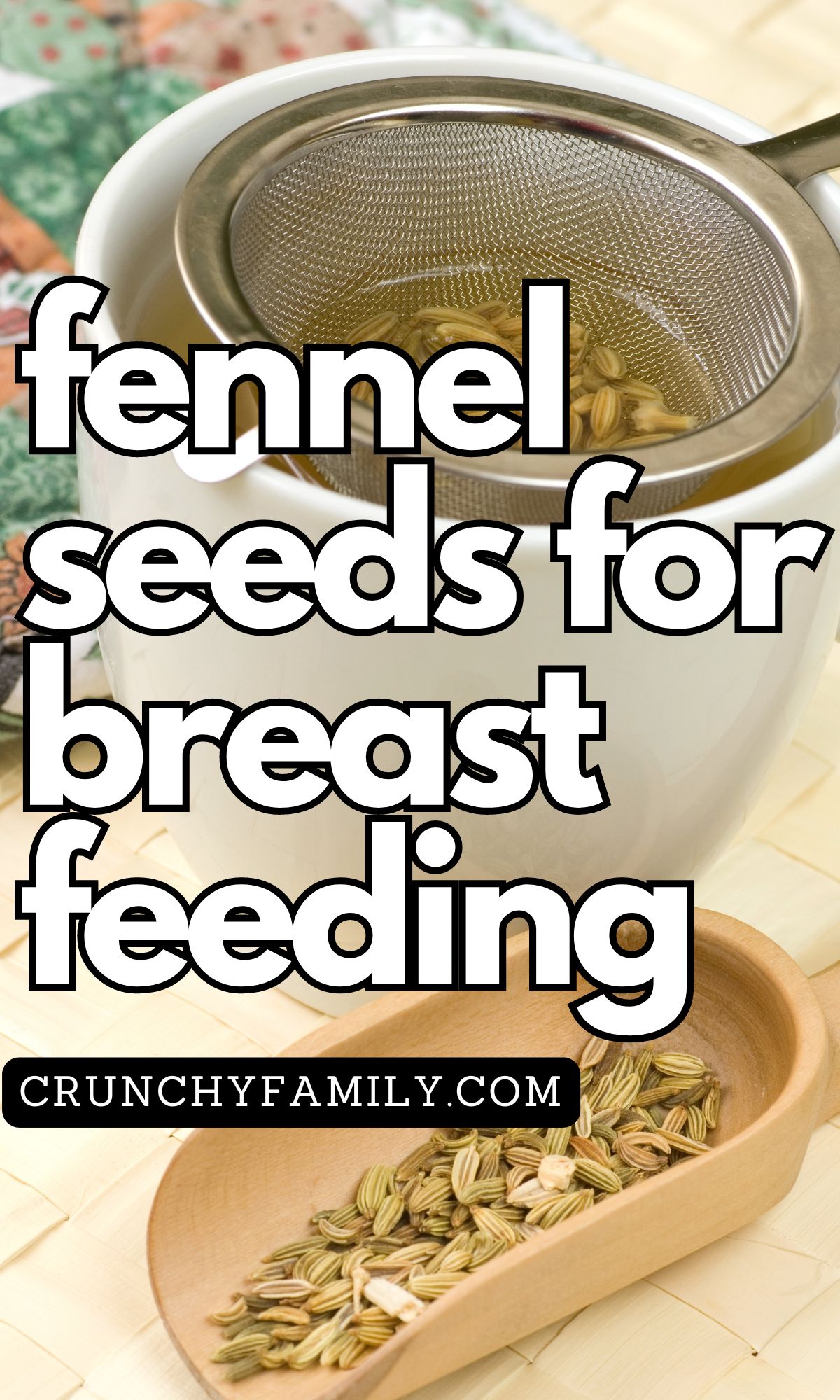
1 thought on “All You Need to Know About Fennel Seeds for Breastfeeding”